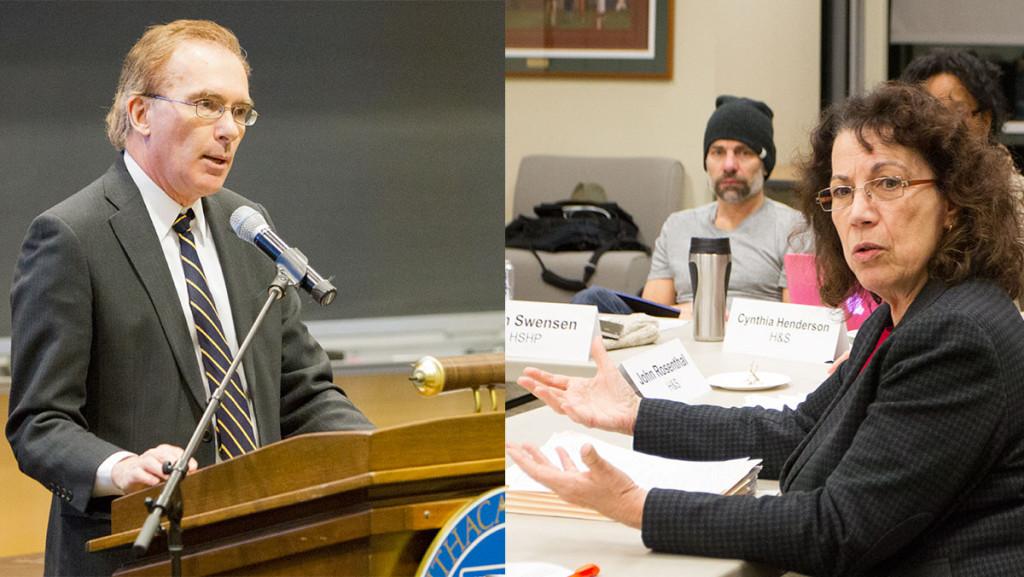Colleges across the country are dealing with a significant increase in requests for mental health assistance from their student populations. Similarly, at Ithaca College, the issue of whether we can meet the demand for mental health services has taken center stage in recent weeks. We want to assure the campus community that we take these needs very seriously in our efforts to maintain a healthy learning environment.
The Center for Counseling and Psychological Services serves as the hub in our network of services that help students deal with the stresses of college life. It is important to remember, however, that the eight trained clinicians on the CAPS staff are only part of the picture. In addition to the counseling services that only those clinicians can provide, the college supports student mental health through a number of other resources.
These include the Center for Health Promotion; Center for LGBT Education, Outreach and Services; Pathways; Assisting Students at Risk; and the Mental Health Response Team. We recently added a case manager position to assist the Behavior Intervention Team in identifying students in need of assessment, case management, intervention, referral and follow-up. These are in addition to the Residential Life and Public Safety staff members who are all trained to observe, intervene and refer students as needed.
The recent controversy has focused on whether CAPS needs a ninth clinical counselor in order to meet student need. It is undeniably true that nine counselors are better than eight, just as having eight is better than the six we had three years ago. Lacking infinite resources to continually add more staff, we must look at both what standard of service students should expect from CAPS — mindful that they are paying for this service through their tuition dollars — and how we might best leverage staffing in innovative ways to be responsive to student needs.
We have spent considerable time in the past couple of weeks reflecting on the concerns raised about access to mental health services, and we believe there are areas where improvements can be made. To that end, we will work aggressively over this summer to identify recommendations for creating a more sustainable model of counseling center service delivery that will increase the number of counseling hours available to students. We will seek expertise both internally and externally and look to community practice models and to other colleges and universities for ideas that are innovative and effective in addressing the concerns that have been raised.
Should we find, as a result of this work, that the only way to add counseling hours is through the addition of CAPS staff, we will take that action.
As we noted earlier, adding staff means increasing costs to students, so it should never be a measure of first resort. Our obligation to keeping student costs in check, however, is rightly balanced by our commitment to maintaining a mental health services program that, in conjunction with other support systems on campus, is able to contribute to the well-being of our students when they are most in need of assistance.
Read The Ithacan’s complete coverage of the recent CAPS controversy.














